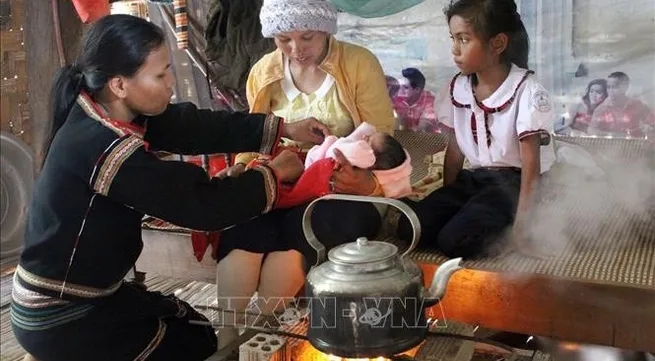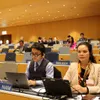Seminar reviews maternal, child care in ethnic minority areas

The event drew the presence of representatives from 21 northern cities and provinces to review the effort during the 2022-2023 period and outline plans for 2024.
Accordingly, provincial-level officials from all 63 cities and provinces attended training courses on nutrition care for babies in their 1,000 first days. The training courses on the model of 1,000 days of nutrition care for provincial-level officials of 39 cities and provinces was also rolled out in Ha Giang and Thua Thien-Hue while a pilot model was carried out in Lao Cai and Dak Lak provinces.
Training was also provided for 566 district-level, 2,870 commune-level officials involved in maternal and child healthcare, and 8,456 village health workers. Over 79,000 pregnant women received iron supplements, and 1,469 malnourished children aged 6-23 months received a package of multiple micronutrient supplementation.
According to the ministry’s Maternal and Child Health Department, the programme targets that by 2025, 90% of pregnant women will receive regular antenatal care and give birth at medical facilities or with the assistance of medical workers. The prevalence of underweight children aged below 5 will be reduced to less than 15%. It also expects to decrease the maternal mortality ratio in mountainous areas to 50 cases per 100,000 live births, and lower the infant mortality rate in mountainous areas to 17%.
The department said next year, priority will be given to allocating funds to disadvantaged mountainous provinces to carry out activities in support of impoverished families. It will also urge and direct units and localities to accelerate the progress of tasks and ensure that they meet schedule and quality requirements.
Tags:





